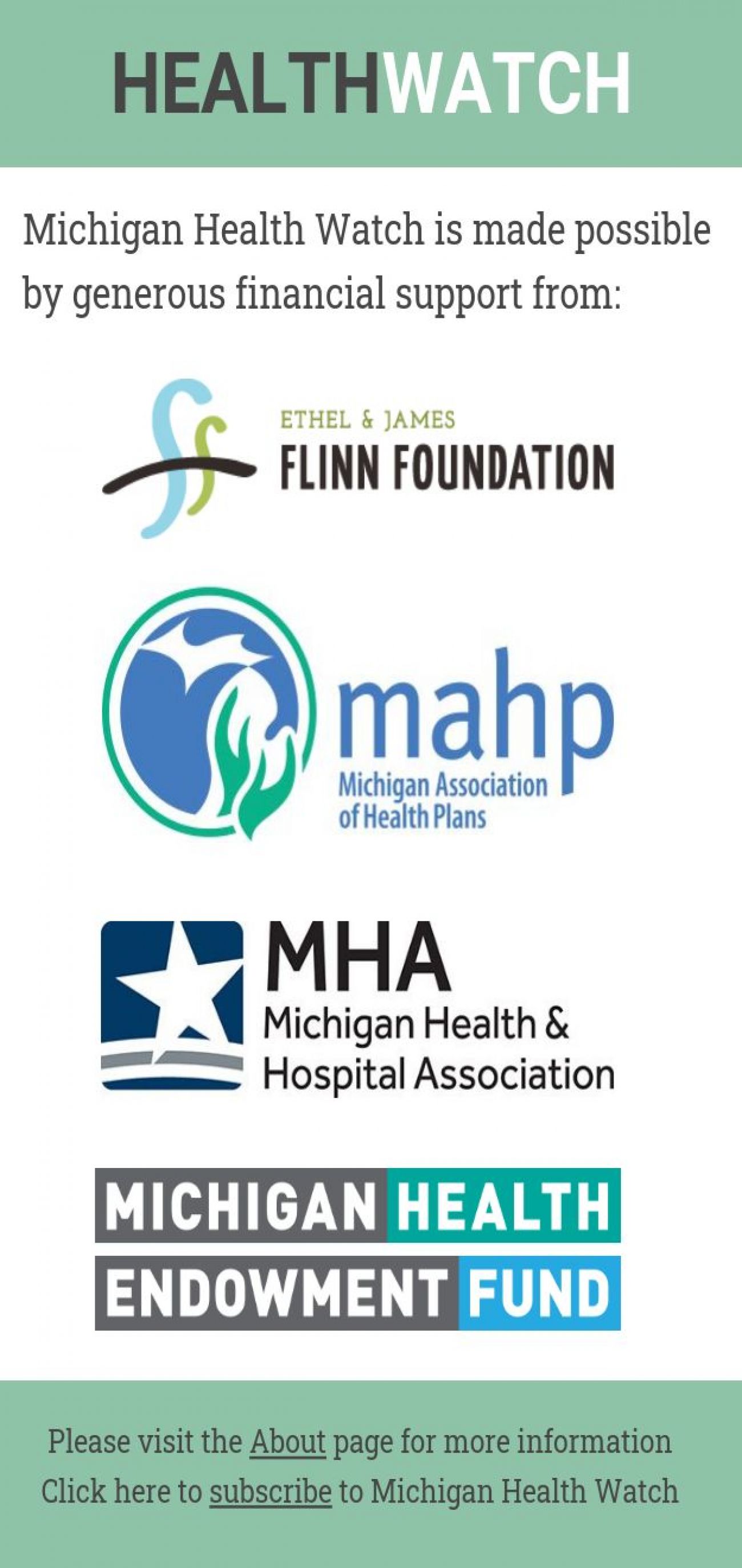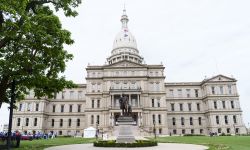Michigan Gov. Gretchen Whitmer links easing COVID rules to vaccines

July 27: CDC recommends indoor mask use. But don’t expect mandates in Michigan
May 14: Mask mandate over for vaccinated in Michigan. Confusion for everyone else?
May 13: America reopening: Fully-vaccinated don’t need masks now, says CDC
May 4: Michigan to begin easing COVID mask restrictions on Thursday
April 30: ‘A personal choice.’ Michigan GOP leaders balk at COVID vaccine incentives
Restaurants can fill again, workers will head back to the office, and Michiganders can ditch their masks under the Michigan “Vacc to Normal” plan announced Thursday by Gov. Gretchen Whitmer.
But the governor is linking the loosening of emergency orders to how quickly Michigan residents are willing to get COVID-19 vaccines.

Each step of the plan is pegged to a goal of vaccinating 70 percent or more of Michiganders 16 and older — a goal set last year for the state as a path to achieving herd immunity. As of Thursday, about 1 in 3 Michiganders had been vaccinated. And nearly half, 48.8 percent, had received the first dose of two doses, according to state data.
If all goes well, Whitmer said, Michigan could hit its first benchmark — meaning that 55 percent of eligible Michiganders have received their first dose — in seven to ten days, with restrictions that would start to lift two weeks after that, before the end of May. Eleven of Michigan’s 83 counties have already met that goal; 19 others, though, remain below 40 percent.
Related:
- All schools need in-person classes this fall, U.S. education secretary says
- CDC reminder: COVID vaccine take 2 weeks to fully kick in after last dose
- Detroit offers $50 a shot to people who bring residents for COVID vaccines
- As Michigan COVID vaccine rates ebb, pop up clinics and casino cash appear
Under the plan:
- Workers can return to the office and other job sites two weeks after 55 percent of Michiganders, or 4.4 million residents, receive their first doses. This would relax a Whitmer administration rule that employees work remotely when feasible.
- Restaurant and bar curfews will be lifted, indoor capacity at sports stadiums, conferences, banquets, funeral homes, now set at different levels, will increase to 25 percent, and capacity limits at gyms will increase from 30 percent to 50 percent two weeks after 60 percent of Michiganders, or 4.9 million residents, receive their first doses.
If the average daily cases remain too high in a specific Michigan Economic Recovery Committee, or MERC region, this step may be delayed for that region.
- Indoor capacity limits, including those in restaurants, will be lifted and social gathering limitations will be relaxed two weeks after 65 percent of Michiganders, 5.3 million residents, receive their first dose. Limits for restaurants are now set at 50 percent capacity or up to 100 people.
- The state’s face masks order as well as limitations on social gatherings, will be lifted two weeks after 70 percent of Michiganders, or 5.7 million residents, receive their first doses.
The current mask order requires masks for anyone age 2 years and older in public indoor spaces, and social gatherings are limited to 15 people from three households. Masks must be worn unless everyone is fully vaccinated.
The state also is “exploring options to ease restrictions for summer events, such as festivals, fairs and golf tournaments,” and will adjust any other pandemic orders to align with new guidance this week from the U.S. Centers for Disease Control and Prevention, Elizabeth Hertel, director of the Michigan Department of Health and Human Services, said at the same news conference.
“Today, I announced the #MIVaccToNormalChallenge, a pathway to gradually get back to normal as we hit our vaccination targets and push toward our goal of vaccinating 70% of Michiganders ages 16 and older. Please, sign up for your vaccine appointment today. Let’s get it done.” pic.twitter.com/q7e4l2zdNR
— Governor Gretchen Whitmer (@GovWhitmer) April 29, 2021
According to that federal guidance, released Tuesday, people who are fully vaccinated — meaning they are at least two weeks past their final dose of a COVID vaccine — can meet with each other with “minimal risk.”
“This summer, we can all throw some burgers on the grill, catch a Tigers game and hit the lake with our friends. We can enjoy our Michigan summer,” Whitmer said.
“As I've said a couple of times now, there is light at the end of the tunnel, but we're still in the tunnel. The only way out is forward,” said Whitmer, noting that she and her daughter were scheduled to get their second doses Thursday.
The new approach is a notable shift for Whitmer, who had previously refused pleas by Republicans and some in the business community to set specific metrics for relaxing regulations, citing a need to be flexible in the fight against COVID-19 and its newer variants.
“We have taken and listened to and gotten a lot of feedback from the legislative leaders, some of which is incorporated in this reengagement” plan, she said.
Senate Majority Leader Mike Shirkey, R-Clarklake, did not weigh in on specifics of the new plan but criticized Whitmer in a statement, saying it “took 400 days too long for the governor to be straightforward about how she will navigate this disease.”
Whitmer said that the broad availability that now exists of vaccines has impacted her approach. Vaccination rates are a metric that wasn’t available through much of last year, and inoculation is the “best tool that we have to get back to normal,” Whitmer said.
“This is a creative way of challenging us to rise to this moment and meet it, and everyone of us can play a part in doing that, and it benefits the whole state when we do so.”
The governor’s plan was lauded by several business and industry groups, including the Michigan Restaurant & Lodging Association. Its president and CEO, Justin Winslow, said in a statement it was “a metric driven plan that offers incentives rather than mandates to drive better outcomes and more opportunity for the imperiled hospitality industry.”
Whitmer also unveiled new TV spots, recorded outside the Ford Field vaccination site in Detroit and designed to boost vaccine rate.
The rush for COVID-19 vaccines has dwindled in recent days as Michigan finishes vaccinating the most eager. On Wednesday, the city of Detroit began offering people $50 gift cards for every Detroit resident they brought in for a shot. And there was no limit to the number of people they bring in or cards they could earn.
Lt. Gov. Garlin Gilchrist on Thursday also stepped up pressure on the vaccine-reluctant, calling on Michiganders to help the vaccine-reluctant get appointments and be vaccinated.
“What we and others around the country have observed is that the thing that moves a person to choose to get vaccinated is hearing from someone who they know about why it is so important, about why they chose to get vaccinated. That means that every person who has not yet chosen to get vaccinated is one conversation away from making that choice,” said Gilchrist, chairman of the Michigan Coronavirus Task Force on Racial Disparities.
Gilchrist and Whitmer’s announcements were made against a backdrop of what the state’s chief medical executive said are “key metrics” that are trending “in the right direction.”
Test positivity rates, case rates, hospitalizations have fallen for more than a week, though they remain higher than they have in the past, Khaldun said: “This is better, but it’s still not where we want to be.”
Outbreaks, she said, “are remaining steady.”
Michigan still remains, by far, the state with the highest infection, hospitalization and positive test rates.
Michigan recorded 51 confirmed or suspected COVID-19 cases per 100,000 residents on Wednesday, far above Colorado at No. 2, which had 30 cases per 100,000.
Khaldun asked that Michiganders be cautious as the state approaches graduation season. MDHHS Thursday updated guidance for such gatherings.
She said “a lot of people are seeking to celebrate end-of-year events, graduations, proms and other events. It's also really important that we do these things safely. We don't want any of these events to cause outbreaks and undo the great progress that we are making.”
A workgroup on back-to-office policies that includes labor and business leaders from companies such as Steelcase and Dow Chemical released recommendations Tuesday that suggested employers also use an incentive approach to encourage worker vaccinations.
Current state rules mandate that businesses require remote work for their employees when “feasible,” a policy that would change under Whitmer's new vaccine incentive plan.
The workgroup advising Whitmer suggested employers set company-wide vaccination goals and consider achievement awards like free food or gift card drawings, as well as other incentives like paid time off or lunches for individual workers who get vaccinated.
“It’s incumbent on employers to support their workforce to go and make sure that they are fully vaccinated, Whitmer said.
Michigan’s Republican-led Legislature has urged Whitmer to lift restrictions, but conservative lawmakers have also pro-actively sought to block incentive policies that would favor vaccinated individuals.
House GOP legislation would bar the state or local governments from using so-called “vaccine passports” that would allow vaccinated individuals to access otherwise restricted areas.
And separate House budget bills would prohibit public universities from requiring vaccinations for students to enroll or take in-person classes next fall. Even as Whitmer announced her new incentive plan, anti-vaccination activists were gathering outside the Michigan Capitol for a rally against “vaccine passports,” which the state has said it has no plan to utilize.
Bridge data reporter Mike Wilkinson contributed to this report.
See what new members are saying about why they donated to Bridge Michigan:
- “In order for this information to be accurate and unbiased it must be underwritten by its readers, not by special interests.” - Larry S.
- “Not many other media sources report on the topics Bridge does.” - Susan B.
- “Your journalism is outstanding and rare these days.” - Mark S.
If you want to ensure the future of nonpartisan, nonprofit Michigan journalism, please become a member today. You, too, will be asked why you donated and maybe we'll feature your quote next time!








